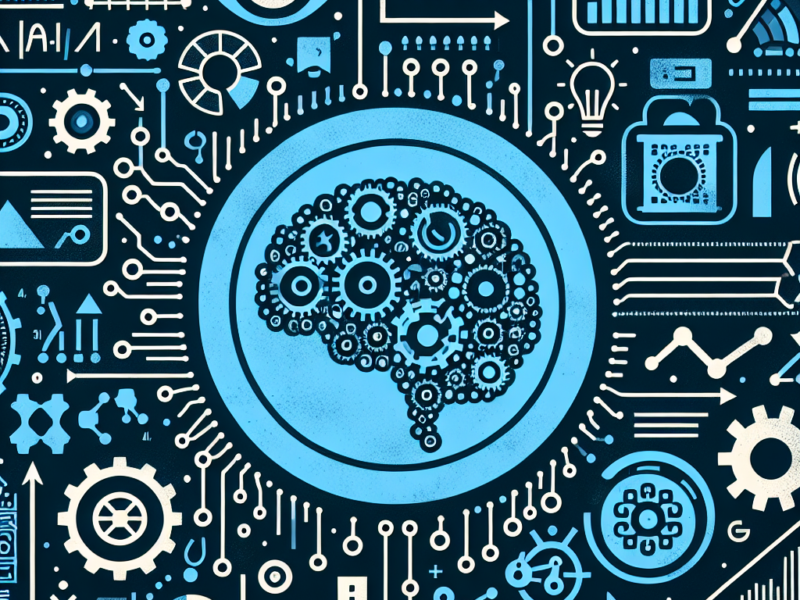Revolutionizing Insights: How AI is Transforming Data Science Approaches
In an age where data is often dubbed the new oil, the evolution of data science has undergone profound changes, especially with the advent of artificial intelligence (AI). As organizations shift their focus toward data-driven decision-making, AI has emerged as a formidable catalyst, reshaping data science methodologies and enriching the insights gleaned from vast troves of information. In this article, we explore the myriad ways in which AI is revolutionizing data science approaches and the implications for businesses, researchers, and society at large.
The Convergence of AI and Data Science
Historically, data science was characterized by labor-intensive statistical analysis, manual data cleaning, and rudimentary predictive modeling. However, with the influx of big data and the increasing complexity of datasets, traditional methods have often fallen short. Artificial intelligence, particularly machine learning (ML) and deep learning, has stepped in to bridge the gap.
AI techniques automate many aspects of data processing, significantly reducing the time and effort required to extract insights. Instead of relying exclusively on predefined models, AI enables data scientists to train algorithms on historical data, automatically identifying patterns and generating predictions with higher accuracy and efficiency.
Enhanced Predictive Analytics
One of the most significant transformations driven by AI is in the realm of predictive analytics. Machine learning algorithms can analyze vast quantities of structured and unstructured data to reveal trends and relationships that traditional techniques might overlook. For example, retail companies can leverage AI to forecast consumer behavior based on purchasing history, social media activity, and market trends, allowing for more personalized marketing strategies.
Moreover, deep learning techniques, particularly neural networks, excel at processing complex datasets such as images, audio, and text. This capability has opened new avenues for industries such as healthcare, where AI can detect anomalies in medical imaging, leading to earlier diagnoses and better patient outcomes.
Natural Language Processing: Unlocking Textual Insights
Another area where AI is making significant strides is natural language processing (NLP). By enabling machines to understand, interpret, and generate human language, AI empowers data scientists to unlock insights from vast repositories of textual data, including customer feedback, survey responses, and social media interactions.
Sentiment analysis, a subset of NLP, allows businesses to gauge public perception of their brand, product, or service through automatic categorization of text as positive, negative, or neutral. As a result, organizations can respond proactively to customer concerns, refine their products, and enhance customer satisfaction.
Real-time Analytics and Automated Decision-Making
The scale at which AI processes data facilitates real-time analytics, allowing organizations to react swiftly to emerging trends or crises. Companies can harness AI-enabled dashboards to visualize real-time data streams, providing decision-makers with actionable insights at their fingertips.
Additionally, AI can automate decision-making processes, particularly in operational environments. For example, in supply chain management, AI algorithms can optimize shipping routes based on current demand and inventory levels, reducing costs and improving delivery times. This level of automation not only streamlines operations but also frees up data scientists and analysts to focus on higher-order tasks such as strategy development and innovation.
Ethical Considerations and Transparency
While AI’s transformative potential is remarkable, it also raises nuanced ethical questions. AI-driven data science must address concerns regarding biased algorithms, data privacy, and transparency. The opacity of some machine learning models can render their decisions inscrutable, leading to questions about accountability in critical applications such as criminal justice, hiring, and lending.
To mitigate these risks, there is a growing emphasis on the importance of explainable AI (XAI), which aims to make AI decision-making processes more transparent and understandable. By combining the power of AI with ethical considerations, organizations can ensure that data science not only produces insights but does so in a manner that is fair and responsible.
The Future of Data Science
The synergy between AI and data science promises to propel industries into uncharted territories of efficiency and insight. As data continues to grow exponentially, the integration of advanced AI techniques will only become more pervasive. Data science professionals will need to adapt, acquiring new skills in AI and machine learning to stay relevant in an evolving landscape.
Moreover, the collaboration between data scientists and AI specialists will be crucial for harnessing the full potential of AI-driven insights. As organizations build interdisciplinary teams, they will be better equipped to tackle complex challenges and drive innovation across various sectors.
Conclusion
AI is revolutionizing the field of data science by automating processes, enhancing predictive analytics, and unlocking insights from complex datasets. As we embrace this transformation, it is vital to balance the advancements in technology with ethical considerations, ensuring that our pursuit of deeper insights aligns with societal values. The future of data science holds immense potential, driven by AI, to unlock new opportunities and drive meaningful change across industries. The revolution in insights is not just underway; it is redefining the very fabric of how we understand and interact with the world around us.











